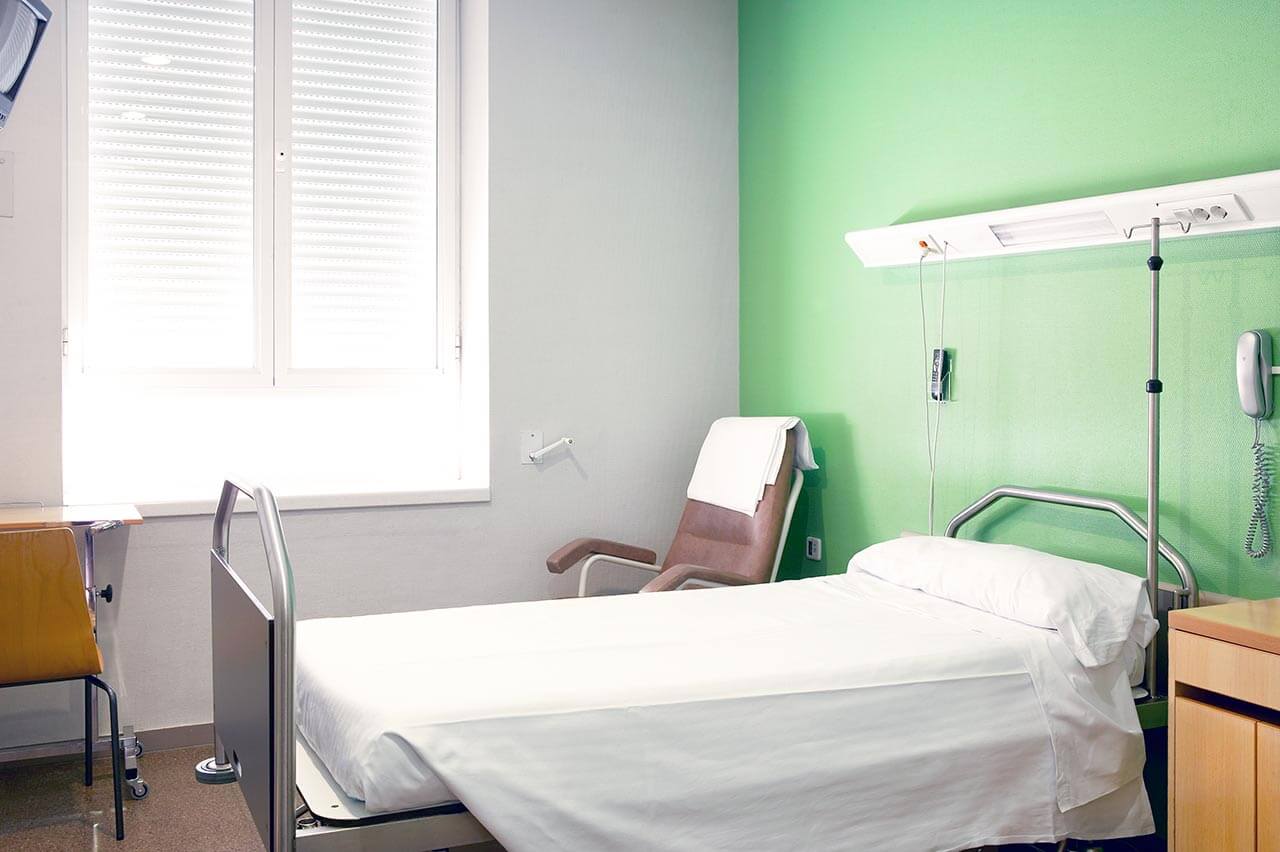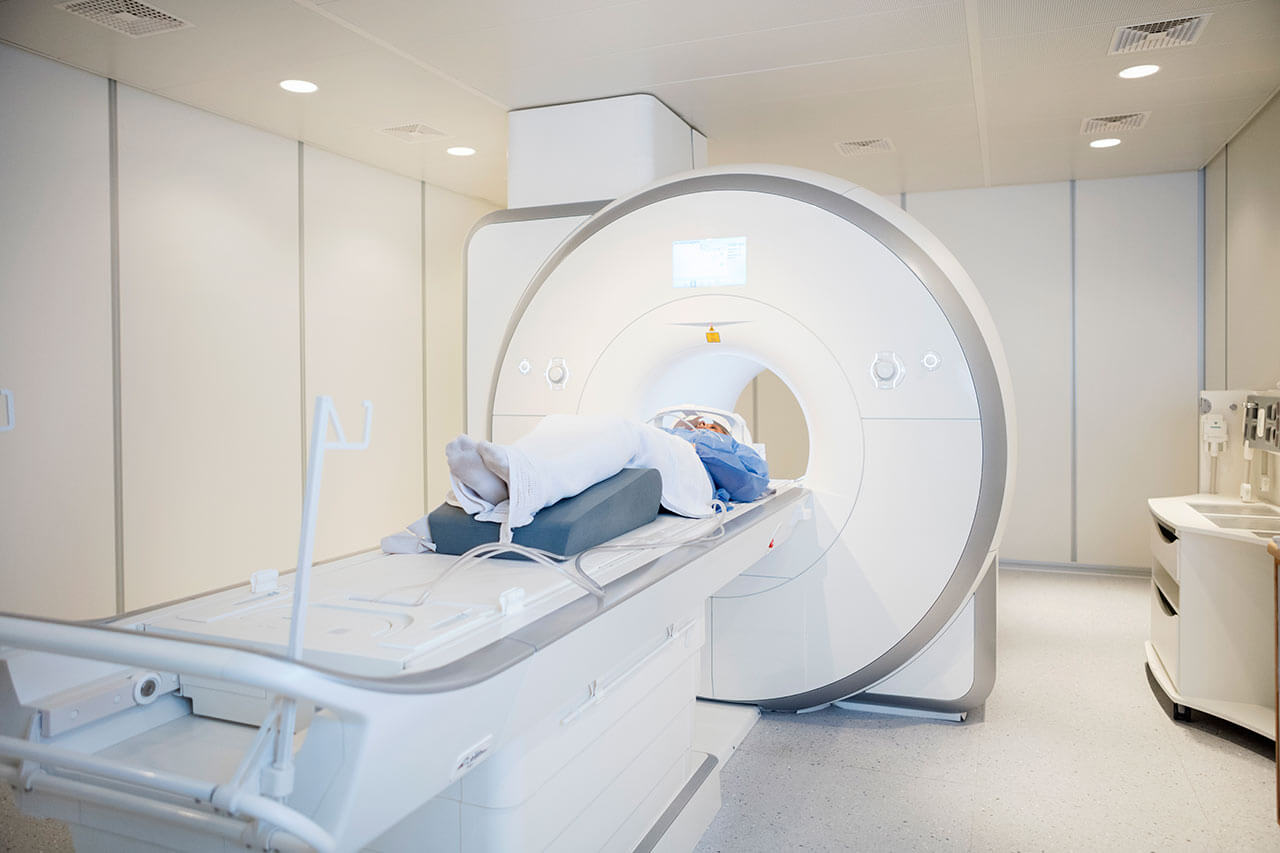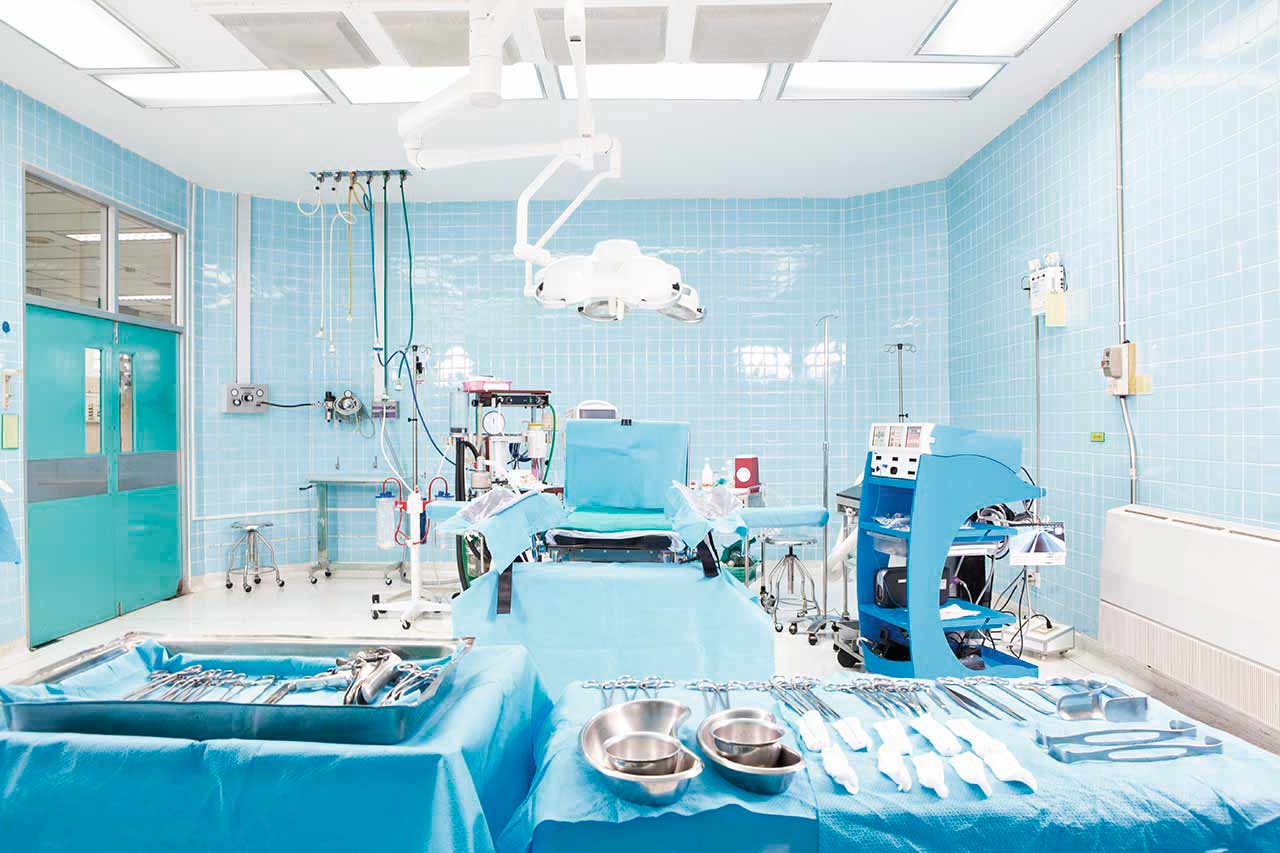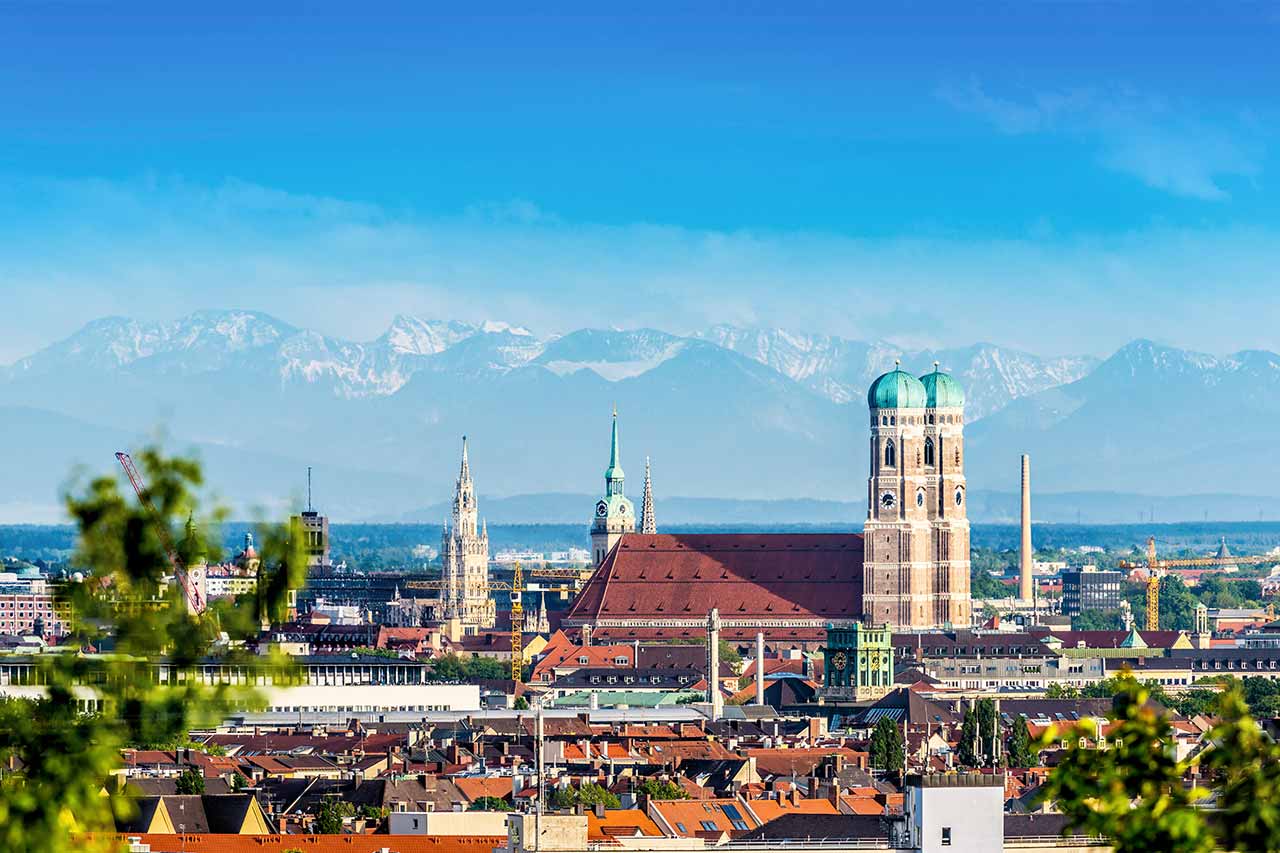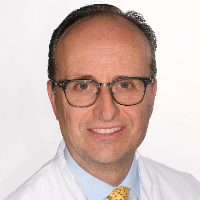
The program includes:
- Initial presentation in the clinic
- clinical history taking
- review of medical records
- physical examination
- laboratory tests:
- complete blood count
- biochemical analysis of blood
- inflammation indicators (CRP, ESR)
- indicators of blood coagulation
- immune status (IgE)
- skin scratch/prick tests
- differential diagnosis with other diseases of the skin
- nursing services
- consultation of related specialists
- treatment by chief physician and all leading experts
- explanation of individual treatment plan
Required documents
- Medical records
- Skin allergy testing (if available)
Service
You may also book:
 BookingHealth Price from:
BookingHealth Price from:
About the department
The Department of Adult and Pediatric Dermatology, Allergology and Phlebology at the University Hospital of Ludwig Maximilian University of Munich offers all the options of modern medicine for diagnosing and treating skin diseases, allergies, and venereal pathologies. The focus of the department's dermatologists is on patients with various types of skin cancer, psoriasis, eczema, neurodermatitis, acne, venous diseases, and chronic non-healing leg ulcers. The medical facility also admits young patients, including those with rare and genetic skin diseases. The department has an excellent technical base, thanks to which modern laser treatment, light therapy, phototherapy, and advanced sparing surgical interventions are successfully performed here. Top-class medical care is provided by a highly professional team of 60 specialized doctors and 130 nurses, as well as medical and technical workers. About 90,000 patients undergo outpatient treatment, and more than 5,800 patients receive medical care on an inpatient basis annually. The hospital has 160 beds to accommodate patients. The department is thus one of the largest medical facilities of this kind in Germany. The department is headed by Prof. Dr. med. Lars French.
The department's specialists provide top-class medical care to patients with skin cancer. The department treats basaliomas, melanomas, and rare skin tumors, such as angiosarcoma, Kaposi's sarcoma, Merkel cell carcinoma, dermatofibrosarcoma protuberans, atypical fibroxanthoma, and others. The department is certified as a Skin Cancer Center by the German Cancer Society (DKG), which guarantees compliance with all current clinical protocols and treatment recommendations. The certificate is also a confirmation of the high treatment success rates. The department offers a wide variety of therapeutic methods for skin cancer, including surgical resection, classical chemotherapy, electrochemotherapy, cryotherapy, laser therapy, immunotherapy, targeted therapy, and radiation therapy. An interdisciplinary tumor board selects the optimal complex of therapeutic procedures for each patient on an individual basis. A patient must follow the recommendations of dermatologists and regularly undergo follow-up examinations for the prevention or early detection of cancer recurrence after the completion of treatment.
An important focus for the department's doctors is the treatment of autoimmune dermatosis. More than 4,000 patients with this diagnosis are admitted to the medical facility every year. During a consultation, a dermatologist performs a clinical examination and prescribes the necessary tests. With the examination results in hand, a specialist prescribes the required treatment. Depending on the diagnosis and the stage of the pathological process, treatment may include conservative methods or a surgical procedure. In most cases, the department's doctors manage to achieve good results with the help of drug therapy with antibiotics and/or biological drugs.
The department also has laser treatment rooms equipped with state-of-the-art technology. Innovative laser systems such as ruby lasers for tattoo and pigmentation removal, diode lasers for unwanted body hair removal, and ablative CO2 and Erb:YAG lasers for scar revision, acne treatment, and skin rejuvenation are available here. Laser dermatologists have a wealth of experience and professional skills to provide patients with high-quality medical care.
In terms of pediatric dermatology, the department's therapeutic offerings include the treatment of skin diseases in children of all ages, including rare and genetic conditions. The most common pathologies include neurodermatitis, psoriasis, warts, nevi, fungal diseases, and benign and malignant skin neoplasms. A treatment regimen is developed individually and most often includes conservative methods. Nevi, warts, and skin tumors are removed using sparing laser techniques whenever possible.
The department's range of services also includes the treatment of allergic diseases such as anaphylactic shock, allergies to drugs, food, insect venom, as well as hay fever, rhinoconjunctivitis, bronchial asthma, mastocytosis, urticaria, and occupational dermatoses. To detect a particular type of allergy, the specialists conduct tests, such as prick tests, patch tests, in vitro provocation tests, etc. Patients with allergies are prescribed modern drugs, including biological products, and allergen-specific immunotherapy.
The department also provides medical care to patients with varicose veins, spider veins, leg ulcers, and superficial and deep vein thrombosis. In the early stages of the above-mentioned pathologies, compression and drug therapy are usually used. In complex cases, the department's doctors, in cooperation with vascular surgeons, perform surgical interventions.
The department's range of services includes the diagnostics and treatment of the following diseases:
- Dermatology
- Benign tumors and precancerous skin conditions
- Malignant tumors (basal cell carcinomas and melanomas) and rare skin cancers (for example, angiosarcomas, Kaposi's sarcomas, and Merkel cell carcinoma)
- Psoriasis
- Acne and rosacea
- Autoimmune skin diseases (for example, systemic scleroderma and systemic lupus erythematosus)
- Occupational skin conditions (such as eczema)
- Bullous skin diseases (for example, pemphigus and bullous pemphigoid)
- Eczematous disorders (for example, atopic dermatitis and allergic contact dermatitis)
- Hair and nail diseases
- Sexually transmitted diseases (for example, HIV and syphilis)
- Skin diseases in children
- Psoriasis
- Neurodermatitis
- Allergies
- Ichthyosis
- Warts and molluscum contagiosum
- Moles and nevi
- Fungal lesions
- Rare and genetic skin diseases
- Allergology
- Anaphylactic shock (anaphylaxis)
- Drug allergy
- Insect venom allergy
- Mastocytosis
- Food allergy
- Neurodermatitis
- Allergic respiratory diseases (chronic allergic rhinoconjunctivitis or bronchial asthma) in the case of allergies to pollen, pet fur, and dust
- Occupational dermatoses
- Phlebology
- Varicose veins
- Spider veins
- Superficial vein thrombosis
- Deep vein thrombosis
- Chronic non-healing leg ulcers
- Other diseases
The department's diagnostic and therapeutic options include:
- Diagnostics
- Non-invasive imaging diagnostics
- Allergy tests
- Digital dermoscopy
- Electron microscopy
- Histological examinations using the full range of immunohistochemical and cytogenetic methods
- Mycological and bacteriological tests (within specialized laboratories)
- Ultrasound scans
- Photodynamic diagnostics
- Conservative treatment
- Drug therapy
- Compression therapy for venous diseases
- Cryotherapy (for example, to remove tumors and warts)
- Laser treatment methods
- Phototherapy (for example, various types of PUVA therapy)
- Photodynamic therapy
- Surgical treatment
- Skin tumor resection
- Defect closure and skin reconstruction using microsurgical plastic repair with local and free flaps
- Microscopic (micrographic) surgery for basal cell carcinoma (primarily in the face)
- Lymph node removal (for example, lymph node dissection for a malignant melanoma)
- Electrochemotherapy for a metastatic melanoma or other superficial metastatic tumors
- Varicose vein surgery
- Nail plate plastic surgery
- Lymph node transplant
- Expander implantation for skin stretching
- Artificial skin transplant
- Aesthetic skin interventions
- Dermabrasion
- Skin lift, for example after pregnancy and weight loss
- Liposuction
- Lipofilling
- Eyelid lift (blepharoplasty)
- Facelift
- Repair of nose, ear, and chin deformities
- Lip reshaping
- Hair transplant
- Hyperhidrosis treatment
- Scar revision
- Treatment of wrinkles
- Treatment of complications and consequences of the use of fillers
- Various types of peeling
- Spider vein removal
- Cellulitis treatment
- Other medical services
Curriculum vitae
Higher Education and Professional Career
- Since 2018 Head of the Department of Adult and Pediatric Dermatology, Allergology and Phlebology at the University Hospital of Ludwig Maximilian University of Munich.
- 2006 - 2018 Head of the Department of Dermatology, University Hospital Zurich, Switzerland.
- 2003 - 2006 Extraordinary Professor, Dermatology, University Hospital Geneva, Switzerland.
- 2003 - 2006 Professorship in Medicine, University of Geneva, Switzerland.
- 1999 - 2000 Visiting Clinical and Research Fellow, Department of Dermatology, University of Pennsylvania, Philadelphia, USA.
- 1998 PD, University of Geneva.
- 1993 - 1997 Resident and Research Fellow, Department of Dermatology, University Hospital Geneva, Switzerland.
- 1993 Thesis defense (Dr. med.), University of Geneva, Switzerland.
- 1990 - 1993 Research Fellow, Cellular and Molecular Biology, University Hospital Geneva, Switzerland.
- 1988 Diploma in Medicine, Faculty of Medicine, University of Geneva. Board certification in Dermatology, PD, University of Geneva.
- 1981 - 1988 Medical studies, University of Geneva, Switzerland.
Positions in Scientific Societies and Committees
- Since 2010, Vice President of the Swiss Society of Dermatology and Venereology (SGDV).
- Since 2008б Board Member, European Dermatology Forum (EDF).
- 2004 - 2005 President of the European Society for Dermatological Research (ESDR).
- 1997 - 2005 Board Member of the European Society for Dermatological Research (ESDR).
Awards and Honorary Memberships
- 2012 Otto Naegeli Prize.
- 2011 Thirty‐Sixth Annual M.H. Samitz Lectureship in Cutaneous Medicine.
- Leo von Zumbusch Memorial Lecture.
- Since 2008 Member of the German National Academy of Sciences Leopoldina.
- 2003 Louis Jeantet Award in Medicine.
- 2000 Pfizer Prize for Сlinical Еrials in Immunology and Rheumatology.
- 1999 Leenaards Foundation Award for Scientific Research Encouragement.
- 1998 Prix Claude Perrier Fondation Prize for Кesearch in Pharmacology.
- 1997 - 2002 "SCORE A" Award for the development of a professional career, Swiss Clinicians Opting for Research / Swiss National Science Foundation.
- 1995 Roche Prize for Dermatological Research.
Main Research Focuses
- Role of the immune system in the development of toxic epidermal necrolysis and skin cancer.
- Apoptosis and drug effects.
- Causes and mechanisms of skin cancer development.
- Treatment methods for skin diseases.
Photo of the doctor: (c) LMU Klinikum
About hospital
According to the Focus magazine, the University Hospital of Ludwig Maximilian University of Munich is regularly ranked among the best medical institutions in Germany!
The hospital is the largest multidisciplinary medical facility, as well as a leading research and training center in Germany and Europe. The hospital is proud of its bicentenary history and tirelessly confirms its primacy at the national and international levels. The outstanding quality of medical care is complemented by highly productive research activities, thanks to which many effective diagnostic and therapeutic methods, saving people’s lives, have been presented in medical practice.
The medical facility includes two main buildings, Grosshadern and Innenstadt. The hospital has 29 specialized departments, 53 interdisciplinary centers, 11 institutes, and many sections. More than 500,000 patients are treated here every year, which indicates the hospital's excellent reputation. A large and highly professional medical team, consisting of 1,800 doctors and 3,300 nursing staff, works for the benefit of patients. The hospital has 2,000 beds to accommodate patients.
The hospital's infrastructure deserves special attention: advanced diagnostic equipment that allows doctors to detect the slightest pathological changes in the human body, the latest operating rooms with highly efficient monitoring systems, robot-assisted surgical systems that facilitate sparing operations, and proper postoperative care.
Excellent technical resources and highly professional medical staff are undoubtedly the hospital's pride, but the medical facility also pays attention to the patient's comfort and to a humane attitude toward their life situation. When providing the necessary medical care, doctors and nursing staff always show a friendly attitude, inform patients in detail about the upcoming diagnostic and therapeutic procedures, gladly answer all questions of interest to patients, and provide moral support during the therapeutic process.
The hospital has many prestigious quality certificates, including a DIN EN ISO 9001 certificate, an IQM certificate, an endoCert certificate, certificates from the German Cancer Society (DKG) for treating various types of cancer, the German Cardiac Society (DGK), the German Society for Orthopedics and Trauma Surgery (DGOU), etc. Thus, patients can count on the best possible treatment outcome due to the use of the most effective and, at the same time, sparing therapeutic techniques.
Photo: (с) depositphotos
Accommodation in hospital
Patients rooms
The patients of the University Hospital of Ludwig Maximilian University of Munich live in comfortable, spacious, single and double patient rooms with a modern design. Each room is equipped with an ensuite bathroom with a shower and toilet. The furnishing of a standard patient room includes a comfortable bed, the position of which can be adjusted using the remote control, a locker for storing personal belongings, a TV, and a telephone. Also, if desired, you can connect to the Internet. In addition, patients can opt for enhanced-comfort rooms, with a safe, a fridge, and upholstered furniture.
The hospital has an excellent infrastructure. The medical facility’s area houses a bank, ATMs, a hairdresser, shops with a wide range of food, drinks, newspapers, magazines, and personal hygiene items, play areas for children, and a beautiful garden for walking, etc.
Meals and Menus
The patient and his accompanying person are offered a daily choice of three menus, including a vegetarian one. If you are on a specific diet for any reason, you will be offered an individual menu. Please inform the medical staff about your dietary preferences prior to the treatment.
Further details
Standard rooms include:
Religion
Religious services are available upon request.
Accompanying person
Your accompanying person may stay with you in your room or at a hotel of your choice during the fixed program.
Hotel
You may stay at a hotel of your choice during an outpatient program. Our managers will help you to choose the best option.
The hospital offers a full range of laboratory tests (general, hormonal, tests for infections, antibodies, tumor markers, etc.), genetic tests, various modifications of ultrasound scans, CT scans, MRI and PET/CT, angiography, myelography, biopsies, and other examinations. Treatment with medications, endoscopic and robotic operations, and stereotaxic interventions are carried out here, modern types of radiation therapy are also used. The hospital offers patients all the necessary therapeutic techniques.
- Allogeneic bone marrow transplantation
- Microsurgical transplantation of head and neck tissues
- Microsurgical resection of brain tumors with intraoperative fluorescence
- Minimally invasive treatment of spine pathologies
- Joint replacement with postoperative rehabilitation (fast track program)
Patients with benign and malignant neoplasms of various localizations, pathologies of arteries and veins, herniated discs, osteoporosis, congenital and acquired pathologies of the musculoskeletal system, benign and malignant pathologies of the mammary gland, and other pathologies.
Which specialties of the University Hospital of Ludwig Maximilian University of Munich are the best?
- Interventional and diagnostic neuroradiology
- Vascular surgery
- Cardiac surgery
- Mammalogy
- Gastroenterology and hepatology
Over 1,700 highly qualified doctors work at the hospital.
